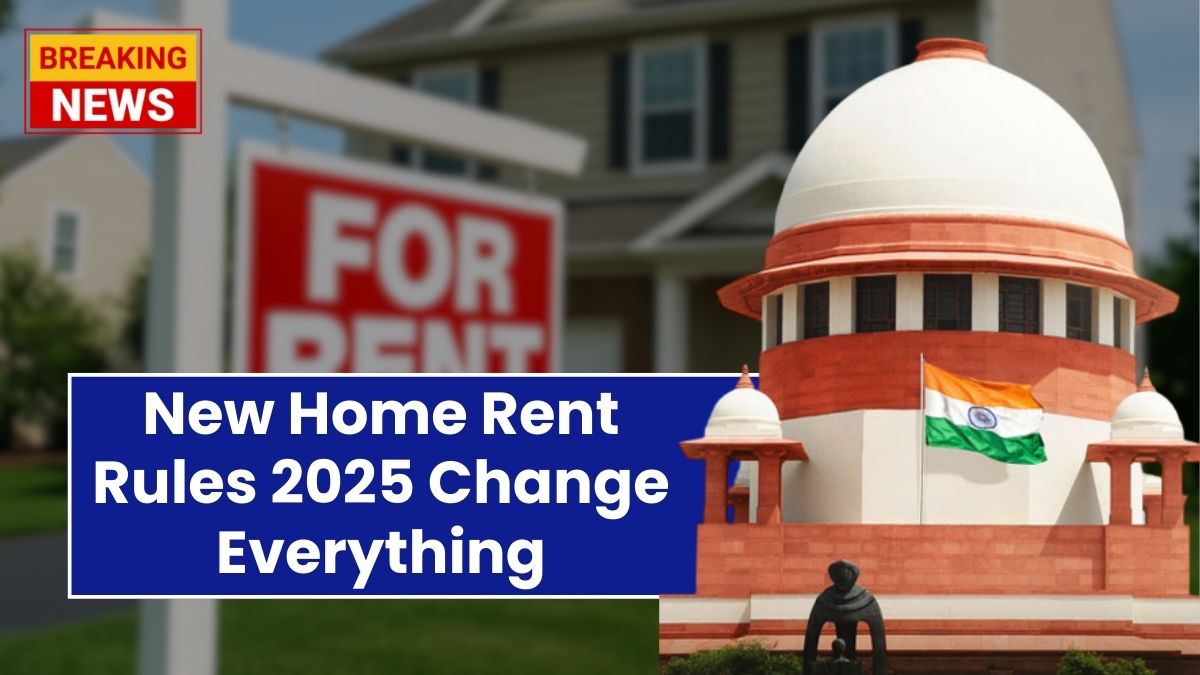If you are living in a rented house or planning to rent out your property, 2025 is bringing important changes for you. Starting July 1, 2025, the Government of India has introduced a new set of rules for the rental housing system. These rules are designed to protect both tenants and landlords, making the process fair, transparent, and hassle-free. Let’s go step by step and understand these new rules in simple language.
Standard Rental Agreements for Everyone
Earlier, most rent agreements were vague, handwritten, or drafted in an informal way, which often led to confusion and disputes. From July 1, 2025:
-
All rental agreements must follow a government-prescribed standard format.
-
The agreement will clearly mention rent amount, security deposit, maintenance charges, and other key terms.
-
Every agreement has to be registered online within 60 days of signing.
This move ensures that both parties are on the same page and disputes can be avoided.
Digital Stamping Made Mandatory
Physical stamp papers are now history. The new rules have introduced digital stamping of rent agreements.
-
Landlords and tenants can pay stamp duty and generate an e-stamp online.
-
Agreements will also be linked with Aadhaar or PAN for identity verification.
-
If landlords fail to get digital stamping, they may face a penalty of ₹5,000.
This step reduces forgery, saves time, and makes agreements legally stronger.
Security Deposit Limits for Tenants’ Relief
One of the biggest reliefs for tenants is the cap on security deposits. Earlier, landlords often demanded high amounts as security, creating a financial burden. Now:
-
The maximum security deposit is capped at two months’ rent.
-
For example, if the monthly rent is ₹15,000, the security deposit cannot exceed ₹30,000.
This makes renting more affordable and fair for tenants while still giving landlords enough security.
Rent Increase Restrictions
Unpredictable and sudden rent hikes have always been a concern for tenants. The new rules solve this issue:
-
Landlords can increase rent by only up to 5% per year, unless a different rate is clearly mentioned in the agreement.
-
Tenants must be given three months’ advance notice before a rent hike.
For example, if your rent is ₹20,000, the maximum increase allowed per year will be ₹1,000. This provides stability and reduces financial stress for tenants.
Stronger Eviction Protections
Tenants no longer need to fear sudden evictions. The new rules make the process more balanced:
-
Landlords can evict tenants only for valid reasons such as non-payment of rent or personal use of the property.
-
Even in such cases, the eviction must go through proper legal procedures in court.
-
Tenants will get 10 business days to respond to an eviction notice.
This ensures fairness and prevents misuse of power by landlords.
Rights and Responsibilities Defined
For the first time, the rights and duties of both tenants and landlords are clearly defined.
Tenants’ Rights
-
Tenants can demand timely repairs for essential services like water supply, electricity, and sanitation.
-
They must receive a rent receipt for every payment.
-
Privacy rights are protected—landlords must give 24-hour notice before visiting the property.
Landlords’ Rights
-
Landlords can act if tenants misuse the property or engage in illegal activities.
-
They are also legally protected if tenants refuse to pay rent or damage the property.
Both sides can approach special rent courts for resolving disputes quickly.
Taxation and TDS Rules
The government has also updated taxation rules related to rental income.
-
Rental income is now covered under Section 28 as income from residential property.
-
Landlords earning less than ₹6 lakh annually from rent are exempted from TDS.
-
If the monthly rent exceeds ₹50,000, tenants must deduct TDS before making the payment.
This ensures a fairer tax system that balances the interests of both landlords and tenants.
State-Wise Rent Controls
While central rules are uniform, states have the power to frame their own rent-related regulations. For example:
-
Maharashtra: Maximum rent increase allowed is 10% per year.
-
Karnataka: Rent can increase only up to 5% per year.
-
Tamil Nadu: Security deposit allowed is three months’ rent (unlike two months in other states).
-
Almost all states: A three-month notice period is mandatory before eviction.
This means tenants and landlords must check state-specific rules before finalizing agreements.
Benefits for Tenants
The Home Rent Rules 2025 bring several benefits for tenants:
-
Affordable renting due to capped security deposits.
-
Protection from sudden and unfair rent hikes.
-
Clear rights regarding repairs, receipts, and privacy.
-
Legal safeguards against arbitrary evictions.
Overall, tenants will have a more secure and stress-free renting experience.
Benefits for Landlords
Landlords also stand to gain under the new system:
-
Legally recognized and digitally registered agreements reduce chances of fraud.
-
Clear guidelines help prevent misuse of property by tenants.
-
Access to special rent courts ensures quicker dispute resolution.
-
Tax rules provide relief to those earning below ₹6 lakh annually.
This creates a fair balance where landlords are not exploited while tenants are protected.
Digital Transformation in Renting
One of the biggest highlights of these rules is the push towards digitization.
-
Online agreement registration.
-
Digital stamping.
-
Aadhaar/PAN-linked verification.
-
E-court systems for rent disputes.
This not only makes renting more modern and efficient but also builds trust and transparency between both parties.
What It Means for Tenants and Landlords in 2025
The Home Rent Rules 2025 are designed to ensure fairness and transparency in India’s rental housing sector.
-
For tenants: Lower financial burden, rent stability, and better protection.
-
For landlords: Stronger legal rights, security against fraud, and structured taxation.
-
For both sides: A streamlined, digital, and transparent process that reduces disputes.
This marks a shift towards a more balanced rental ecosystem in India.
Final Word
Whether you are a tenant struggling with high rents or a landlord trying to protect your property, the Home Rent Rules 2025 will directly affect you. Make sure you:
-
Register your rental agreement online.
-
Understand your rights and responsibilities.
-
Follow the new processes carefully to avoid penalties.
By doing this, you can avoid conflicts and enjoy a fairer, stress-free renting experience.
Disclaimer
This article is for informational purposes only and is based on the latest government guidelines available for 2025. Rental laws may differ from state to state, and individual cases may have unique requirements. Readers are advised to check official government notifications or seek professional legal advice before making rental decisions.



